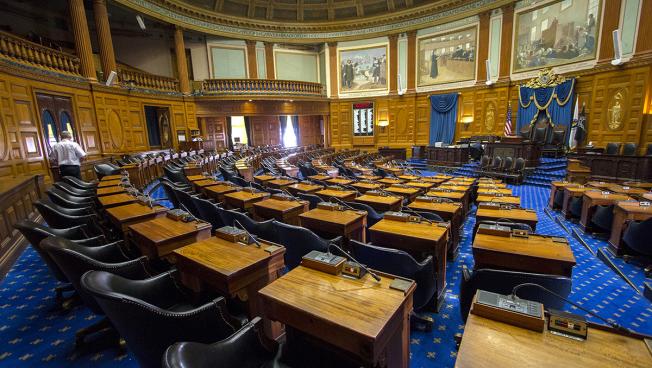How Legislators’ Late Session Scramble affects Government Transparency
Now that there has been sufficient time for experts and the media to review the various bills that the 189th General Court passed in its “Race to Recess”, it’s time to focus on the process itself. The late session scramble to pass legislation thwarted meaningful government transparency.
The 189th Massachusetts General Court ended on July 31st, with legislators voting on a handful of vital pieces of legislation. At the end of a two-year cycle, both chambers of the legislature were able to pass comprehensive regulations for transportation network companies (TNCs) like Uber and Lyft, and come to consensus on the amount of hydroelectric and wind power use in the Commonwealth and pay equity legislation, should be praised. Deliberations came down to the wire, raising concerns about the legislative process. Even though productive, the last-minute scramble came at a cost: the lingering sense the public accountability was compromised. After all, a healthy democracy is dependent on an engaged citizenry. Engagement is fruitless without the government accountability that goes hand in hand with transparency.
The “Race to Recess” proceeded with limited public disclosure, as lawmakers did not publish finalized compromise bills for public viewing by the eight o’clock pm Saturday deadline before the bills were voted on and sent to the governor’s desk late Sunday night.
By breaking its own rules, for instance, per Section One of the Speaker section of the House Rules Booklet, the House is not allowed to have proceedings after nine o’clock PM without voting to proceed on to a secondary deadline of midnight, which then needs an affirmative unanimous vote in order for the House to continue deliberations after midnight. Because of the late hour, the legislature essentially limited outside interests from viewing the legislation in part because aggrieved parties did not receive disclosure regarding bills’ contents and time to discuss with legislators why such legislation should be supported or rejected before legislators actually voted. The last minute deliberations also may not have not allowed adequate time for legislators to read the legislation thoroughly before voting on it. A recent Boston Globe article highlighted this lack of transparency.
When a legislative body—in this case the Massachusetts legislature—suspends its own rules, it may mean they can proceed through deliberations without adequate oversight or input from industries that would be impacted by new laws. For instance, with regards to TNCs, a small section of pro-taxi legislators could have effectively lobbied for wording to be put into the legislation that could have held TNCs to the same regulations as taxis, without allowing TNCs to plead their opposition to such a measure. Normally, the rules governing bodies like the Massachusetts legislature can be suspended for any number of reasons, but in this case it was due to a time crunch.
Is it reasonable for lawmakers to act on behalf of their constituents in such a rushed timeframe? And when there is limited transparency in government, how can we be sure that laws enacted were done so in the public interest, not in that of legislators?
What happened this session in the State House counters what is set forth in the United States Constitution. The United States Constitution begins with the three words “We the people.” Implied in the phrase is the notion that the actions of government reflect the ideals of the citizenry. Without transparency or when transparency can only occur at great inconvenience to the public – not many among us will pay a late night visit to the state house – the health of our democracy is compromised.



